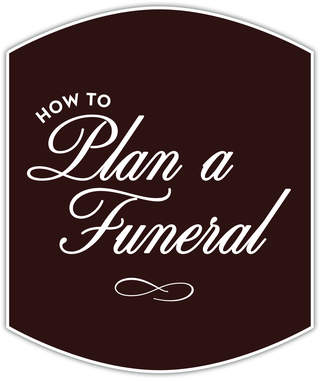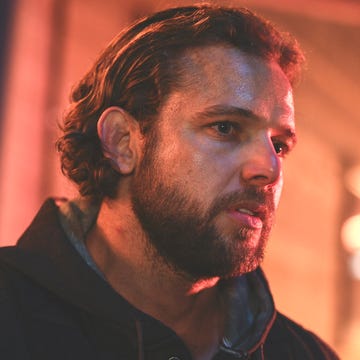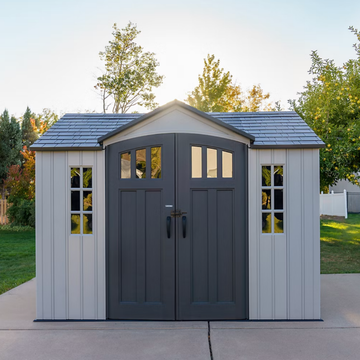It was my aunt’s unveiling that nearly broke me. Standing in front of the gravestone, its face polished to a shine, its sides left rough, I read her name and death date and understood in my bones that she was not coming back. She was gone, along with my father, my mother-in-law, my grandparents, both of our 20-year-old cats, the three colleagues who’d recently passed away, the friend who collapsed last summer while jogging, the mentor whose obituary I stumbled across.
If you’re lucky enough to live into midlife, the occasional deaths of elders, friends, and acquaintances accelerate into a fire hose of accumulating losses. When I was younger, the prospect of my own disappearing terrified me. But now, what scared me more was imagining a world without any of the people I’ve loved, and knowing I couldn’t keep that from happening.
Years earlier, as my mother-in-law (who was more of a mother to me than my own) lay dying, I’d undergone the closest thing to a spiritual experience I’d had then or since. Driving away from seeing her for what I knew would be the last time, sobbing behind the wheel, a bubble of what could only be called joy rose through my body. For a few minutes, I felt on an almost cellular level that I was connected not just to her but to everyone else in the world. It was enormously consoling.
I ran my hand across the etched Hebrew letters of my aunt’s name, wishing I could hug her one more time, and felt paralyzed by sadness. Humans are hard-wired to fear our own helplessness, especially when it comes to death. But loss and grief can also remind us of the true meaning of life. Now, in the face of my aunt’s passing, I tried to remember the lessons I’d learned in those complicated moments of grief.
Focus on what you can control
“Every day, from the moment of birth, life is a series of transitions and losses,” says Alan Wolfelt, Ph.D, a clinical thanatologist (death specialist) who founded and directs the Center for Loss & Life Transition in Ft. Collins, Colo. We have no control over when or whether we experience those losses. But we do have some say in how we respond to them.
For some people, that sense of control might come from belief in an afterlife and the promise of being reunited with loved ones. For others, it might come from organizing logistics. Marilyn Mendoza, Ph.D, a professor of psychiatry at Tulane University and author of We Do Not Die Alone told me about a client who was dying of heart failure and grew frustrated by her family’s unwillingness to even acknowledge she was dying, let alone discuss any details. So the client bought herself a funeral plot, picked out a stone and chose the dress she wanted to be buried in. “That really empowered her in a time when you don’t feel like you have a voice,” says Mendoza.
We tend to underestimate how much of a difference that sense of agency brings. The truth is, any element of choice can empower us. “Even when it seems tiny and irrelevant, it’s not,” says Rachel Zack Ishikawa, a clinical psychologist in the Massachusetts General Hospital department of psychiatry who specializes in treating grief. “We need that, even if it’s just a shred.”
Focus on the choices you have rather than on those you don’t. Wolfelt, for instance, recently had a hip replacement and became keenly aware of his body’s limitations. Instead of fixating on what he couldn’t do anymore, he reminded himself of what he could still manage. “There’s a life worth living in the present,” says Ishikawa.
Allow yourself to grieve and mourn
It’s counterintuitive, but letting yourself feel your grief can be uplifting. We tend to try to avoid painful feelings by going numb or distracting ourselves, says Mackenzie Stocum, an existential therapist in Philadelphia. When we embrace those feelings instead, some of the fear naturally evaporates. As a wise therapist of mine once put it, “Feelings have a natural half life when you stop resisting them and just let yourself feel them.”
When we don’t lean in to those feelings, according to Wolfelt, we’re not really living. “There’s a kind of normal grieving that occurs as you age,” he explains. “You have to integrate it into your life. Sit with the discomfort without trying to fix it. Let yourself grieve. Stay open to the pain and let it soften you instead of harden you.”
Mourn the deaths of people you love, in addition to grieving them. Grief, according to Wolfelt, is an internal response to loss, our thoughts and feelings. Mourning, on the other hand, is a shared social response, a public acknowledgment. That might mean anything from organizing a funeral or remembrance ceremony to starting a fund or planting a garden in honor of the person who’s died.
There’s also a growing movement toward death cafes, Wolfelt points out. These monthly gatherings invite people to come together for refreshments and frank conversations about death and dying. Talking about the things that scare us, especially with other people, can offer comfort even though it doesn’t change reality. “It helps to focus us on what it is that we have now,” explains Mendoza.
It's also important to connect often with the people you care about. Research shows that maintaining those connections is good for the body as well as the soul. Having a strong social network reduces the risks of heart disease, stroke, diabetes and premature death, along with making us feel less alone.
Live your life to the fullest
Pretty much everyone I talked to for this story agreed that the best way to find joy in the midst of grief is, quite simply, living life fully. “One of the main things about death anxiety, whether it’s your own or of others, is being able to live our lives in a way that we don’t have many regrets,” says Stocum. “What’s really important is the idea of finding meaning in our lives.”
Each of us may find that meaning in a different way. For instance, I find meaning in writing stories that help other people through challenges, and in connecting with my daughters, friends and students. My husband Jamie, a photographer, finds meaning through creating art.
“Are you going to decide what gives your existence quality and meaning, and embrace that?” asks Wolfelt rhetorically. “Or are you going to deny and fight against that and put your energy into that fighting?” Ultimately, we get to choose. That doesn’t change the realities of life and death. But it does make me feel better.
Harriet Brown has written for Vogue, O Magazine, Glamour, The New York Times, Prevention, Psychology Today and many other publications. She is also the author of several nonfiction books on estrangement, body image and eating disorders and teaches magazine, news and digital journalism at the Newhouse School in Syracuse.















